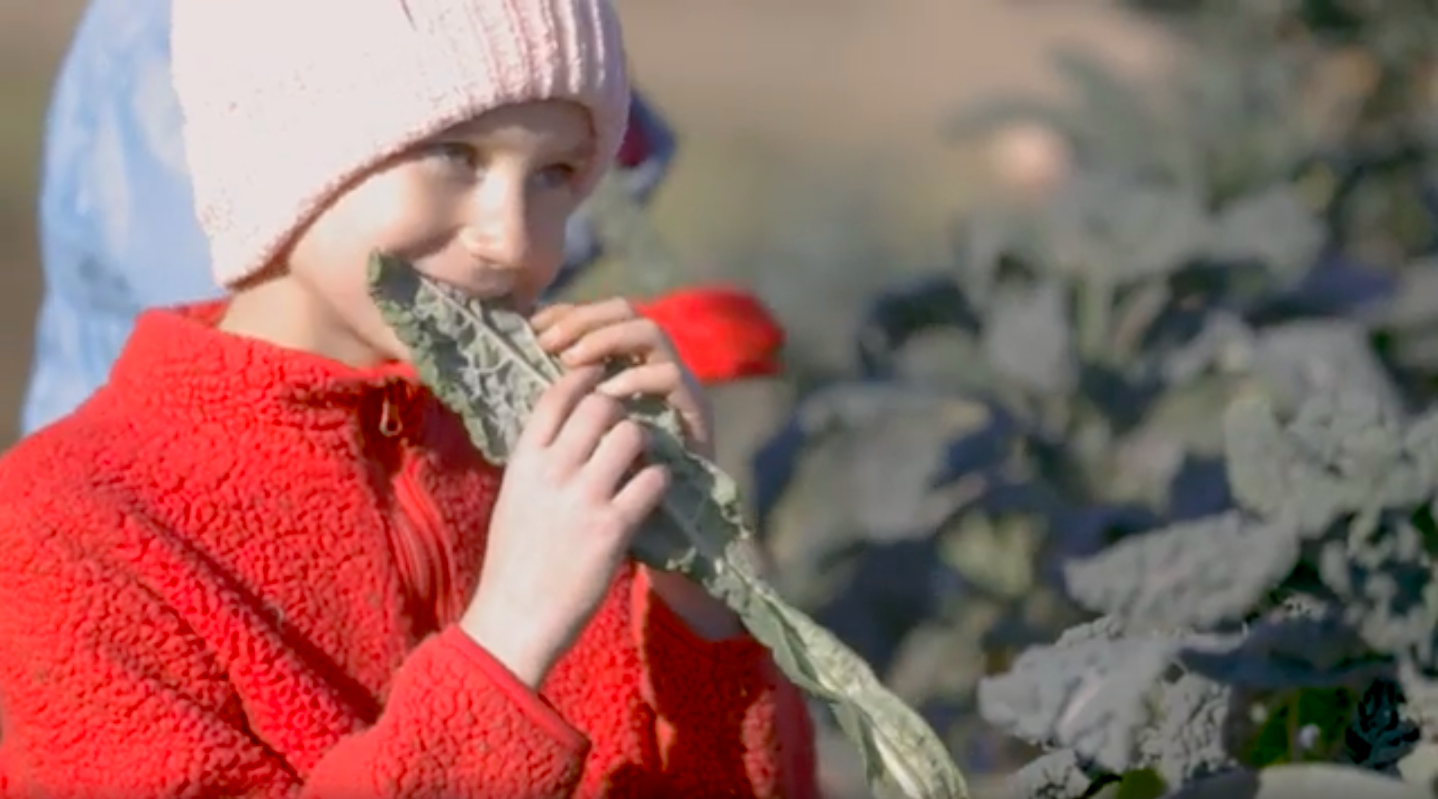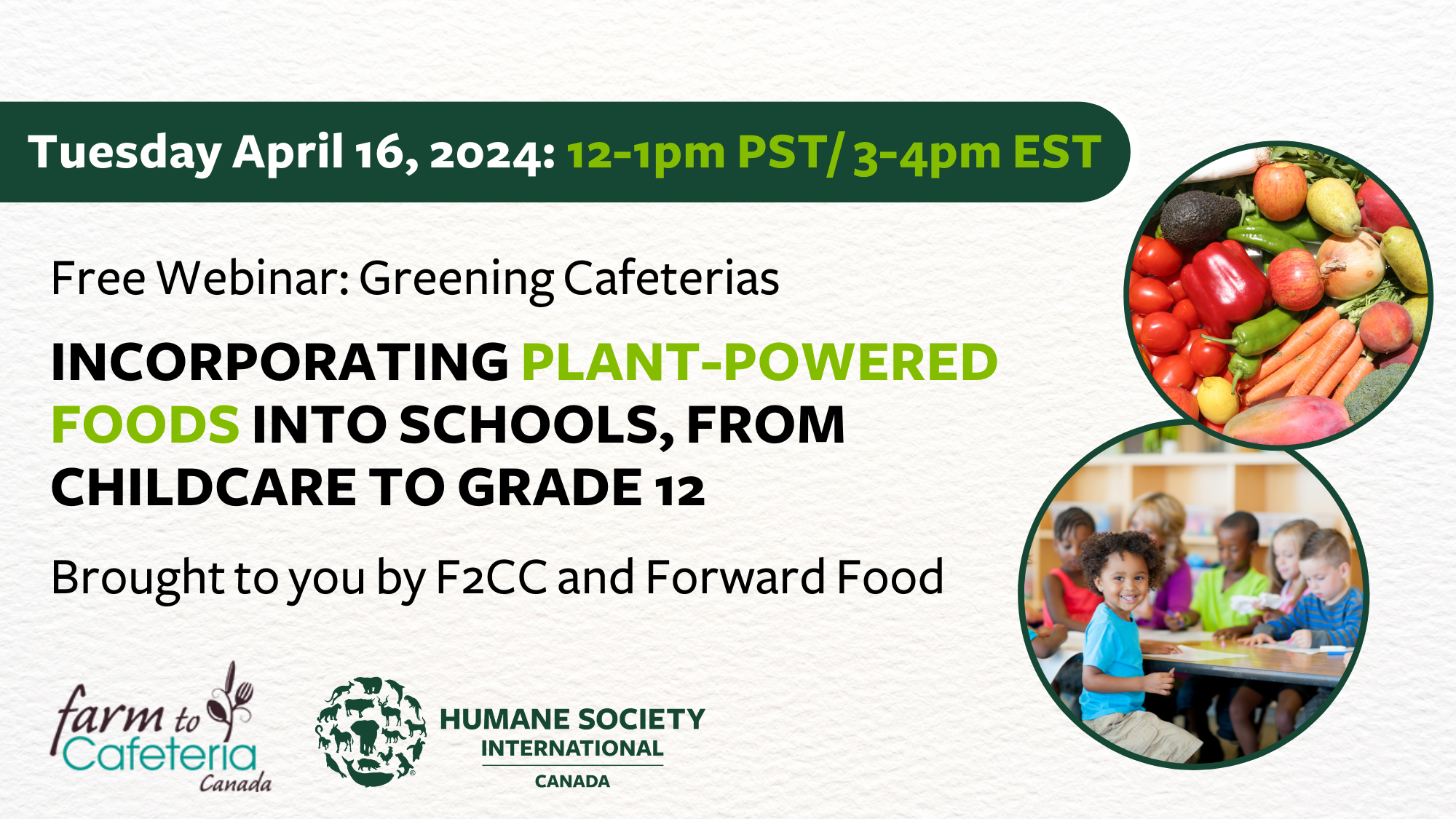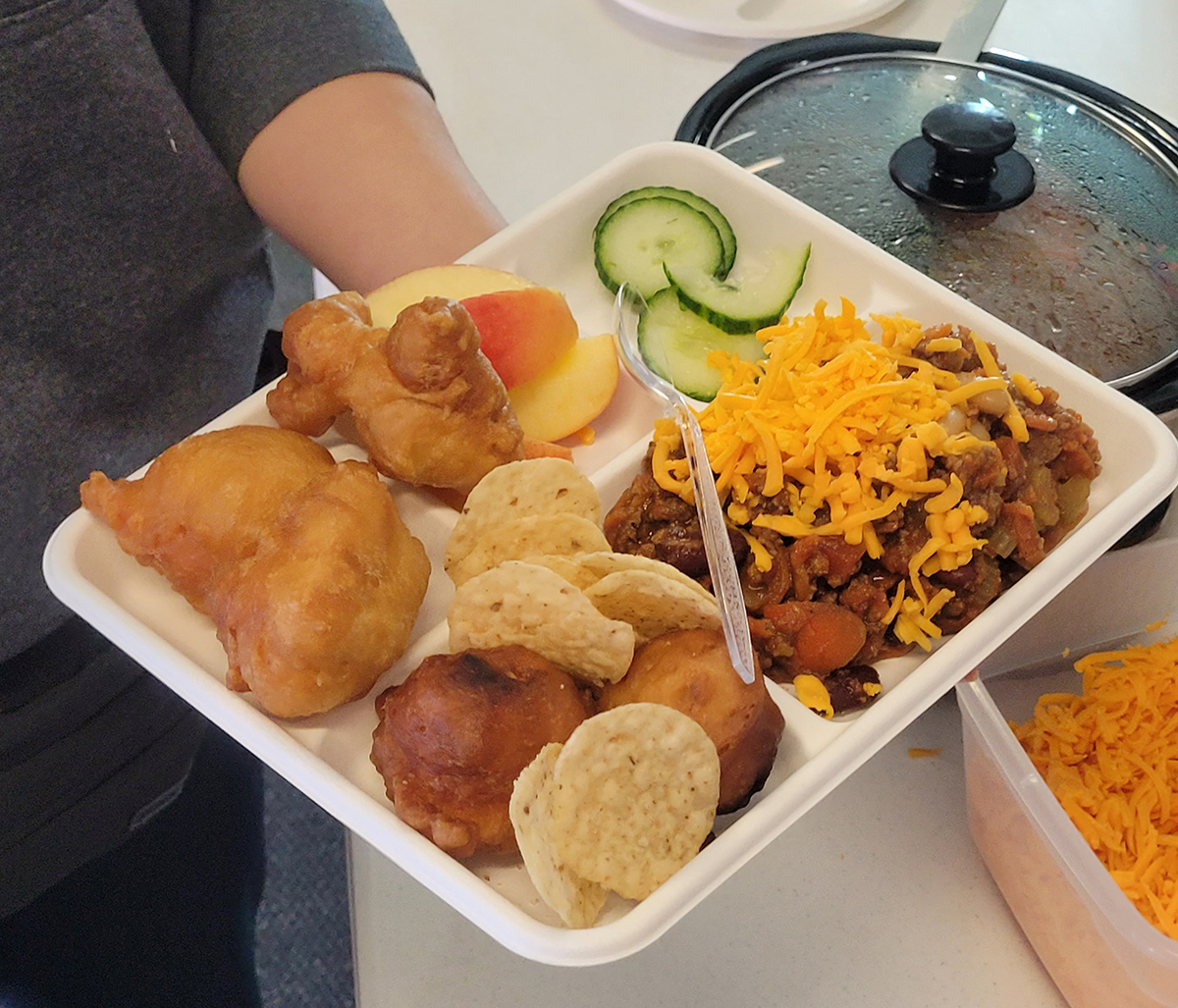In October, we released our Farm to School: Canada Digs In! Report 2020, which demonstrates how farm to school initiatives can significantly support public health, education & learning, economic development, and community connections.
We’re now excited to share our new 9-minute Farm to School: Canada Digs In! video — available in English and French—that communicates the impacts of the Canada Digs In! initiative through one region’s story.
The video is centred around Primrose Elementary School in Mulmur, Ontario, one of our passionate Farm to School Canada Grants recipients. You can read more about their farm to school journey on our blog here, and how their salad bar has helped them to embed farm to school into their school’s culture.
The Farm to School Approach, as our video demonstrates, is about (1) healthy local food in schools, (2) hands-on learning opportunities, and (3) community connections. These elements support student nutrition, build food skills, enhance learning, reduce environmental impact, strengthen local economies and food systems via partnerships (for instance, with local farmers or fishers), and achieve a wide range of other impacts.
Primrose Elementary put their three-year (2016-2019) farm to school grant to use by investing in growing opportunities for their students and by purchasing some new equipment including a bicycle blender and salad bar unit. Within their first nine salad bar lunches, they had already served over 369 meals including over 77 pounds of local food from farms and producers within 10-25 km of the school!
Amy Ouchterlony, farmer & co-owner of Fiddle Foot Farm, has been a supplier for Primrose’s salad bar program since it began. Fiddle Foot Farm is where our video begins, with Primrose students getting to visit their local farmer and see where their salad is grown. “We’re educating future grocery shoppers,” Amy explains, “and all of our food decisions are a vote for the way we want food to be produced.” You can learn more about Amy’s role in our Q&A here.
Jennifer Payne, former Primrose Salad Bar Lead, shares in the video: “What farm to school does is really allows [students] to connect to where their food comes from in a way that they may not necessarily have in their everyday lives.” Jennifer says one of the most profound impacts for her has been seeing how excited kids get about vegetables.
In the video, our National Director Jesse Veenstra points out how schools can play a role in transforming local food systems: “If you had one dollar a day per student that was going toward local procurement, in the course of a year that would be an economic impact of a billion dollars.”
Farm to school is a win-win-win for students, farmers and communities.
What we teach our students, and how we nourish them, will directly impact our communities — and that ‘win-win-win’ can all start with getting young people excited about healthy, local food.
While visiting Fiddle Foot Farm, one student asks with a smile, “can we have carrots for dinner?”
Watch for yourself in the video here:
You can read more about other schools participating in our grants program here.






[…] Another 9-minute F2CC video communicates these impacts through the story of Primrose Elementary School in Mulmur, Ontario. Primrose has a fantastic story, showing how their salad bar has helped them embed farm to school into their school’s culture. Check out the Primrose video here. […]